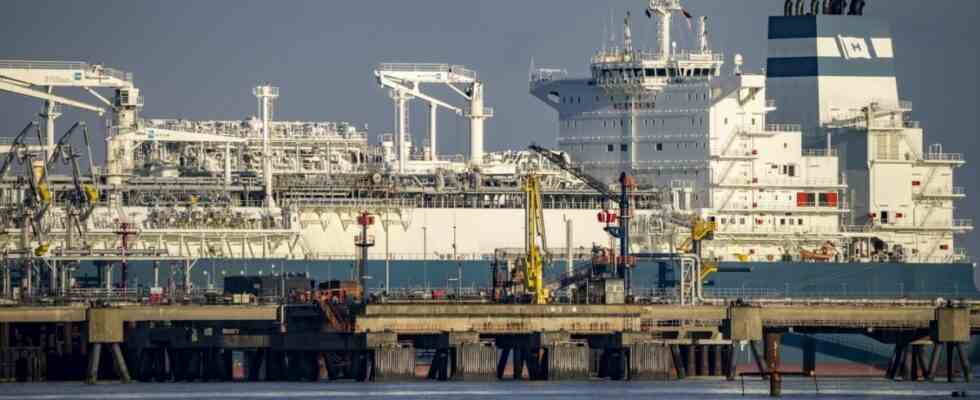First too little, soon too much? Thanks to new terminals for liquefied natural gas, much more gas could be landed in 2030 than Germany needs. This caused resentment in the coalition.
Robert Habeck now knows the basics of terminals in his sleep. The Green Economics Minister can easily add up how much liquefied natural gas is being landed at the so-called LNG terminals and how the situation is easing as a result. After all, the LNG from all over the world is supposed to replace Russian imports. But now a report from Habeck’s ministry to the budget committee of the Bundestag shows: By 2030, the terminals will not only be able to satisfy the LNG requirements of Germany and many Eastern European countries. There is even a significant “safety buffer”. 34.4 billion cubic meters could be landed in Germany, which nobody actually needs. This corresponds to well over a third of German consumption.
The ministry points to risks such as “damage, sabotage or other exogenous events” that could be buffered in this way – up to and including the failure of Norwegian imports. A total of nine terminals will ensure this by 2030, seven of which will be in the hands of the federal government. Among other things, he has chartered five floating terminals for this purpose. Up to 2038, 9.8 billion euros are now estimated for all this. Even that will not be enough, the Ministry of Economic Affairs makes clear. For the floating terminals, for example, “significant cost increases” are expected.
Within the traffic light coalition, there is now increasing criticism of the federal government’s excessive caution – which the Chancellery in particular had apparently urged. A certain security surcharge is justified, says the green budget politician Sven-Christian Kindler Süddeutsche Zeitung. “But by 2030 there is a risk of costly, fossil overcapacities.” This also jeopardizes the achievement of the climate goals. “Each euro for LNG projects is ultimately lacking in heat pumps, building renovation or green hydrogen projects.” Kindler’s colleague from the FDP, Otto Fricke, sees it very similarly. “We must not be guided by fear, but by reason,” he says. Overcapacities must be avoided for climate and budgetary reasons. “We need as much as necessary,” says Fricke. “But not as much as possible.”

